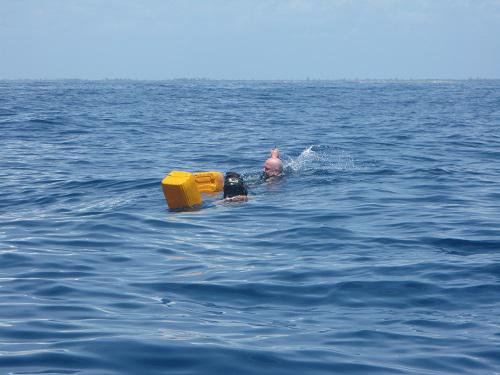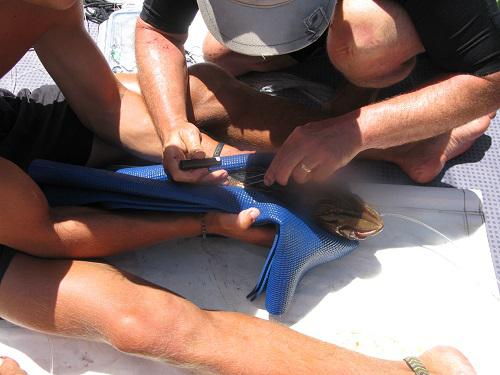Isabel Marques da Silva
Other projects
18 Jun 2014
Conservation and Management of Reef Sharks in the Western Indian Ocean through Scientific and Local Community Collaborative Actions
6 Sep 2017
Conservation Management of Endangered Fish Spawning Aggregations and Reef Sharks in the WIO: Promoting Community Designated Marine Protected Areas
To protect and study the only aggregation of grey reef sharks in East Africa, making sure that the community is involve.

In 2015, the team will aim to:

(i) continue acoustic telemetry monitoring to elucidate the long-term residency and movement patterns of grey reef sharks at Neptunes,
(ii) provide capacity building to two local residents on acoustic telemetry methods, equipment maintenance and shark tagging procedures,
(iii) engage the Mozambican government in the conservation of regional shark populations
(iv) undertake a field trip to Neptunes with central and provincial government representatives to raise awareness about the site
(v) organize a series of meetings between scientists, the government, the lodges and the local communities to plan the implementation of a new marine protected area at Neptunes and approve a management plan Acoustic telemetry during phase one of the project is showing that two sharks are highly attached to Neptunes.
During the period when divers do not typically see the sharks (December to June), we are still detecting the animals at the site. Satellite tag data indicates these sharks move deeper as water temperature increases, but spend a large proportion of their time at Neptunes. Continued telemetry monitoring will provide the necessary long-term data to determine the temporal residency of individual grey reef sharks at the site plus broader scale movements where they may interact with artisanal fisheries.
Through this process, training will be provided to local community members to ensure long-term sustainability of the project. These data, in conjunction with the involvement of the Mozambican government, local communities and lodges will create the conditions to enact a marine protected area. The meetings and visit with the government will provide the basis to lay out and implement a management plan for the future conservation of the area.